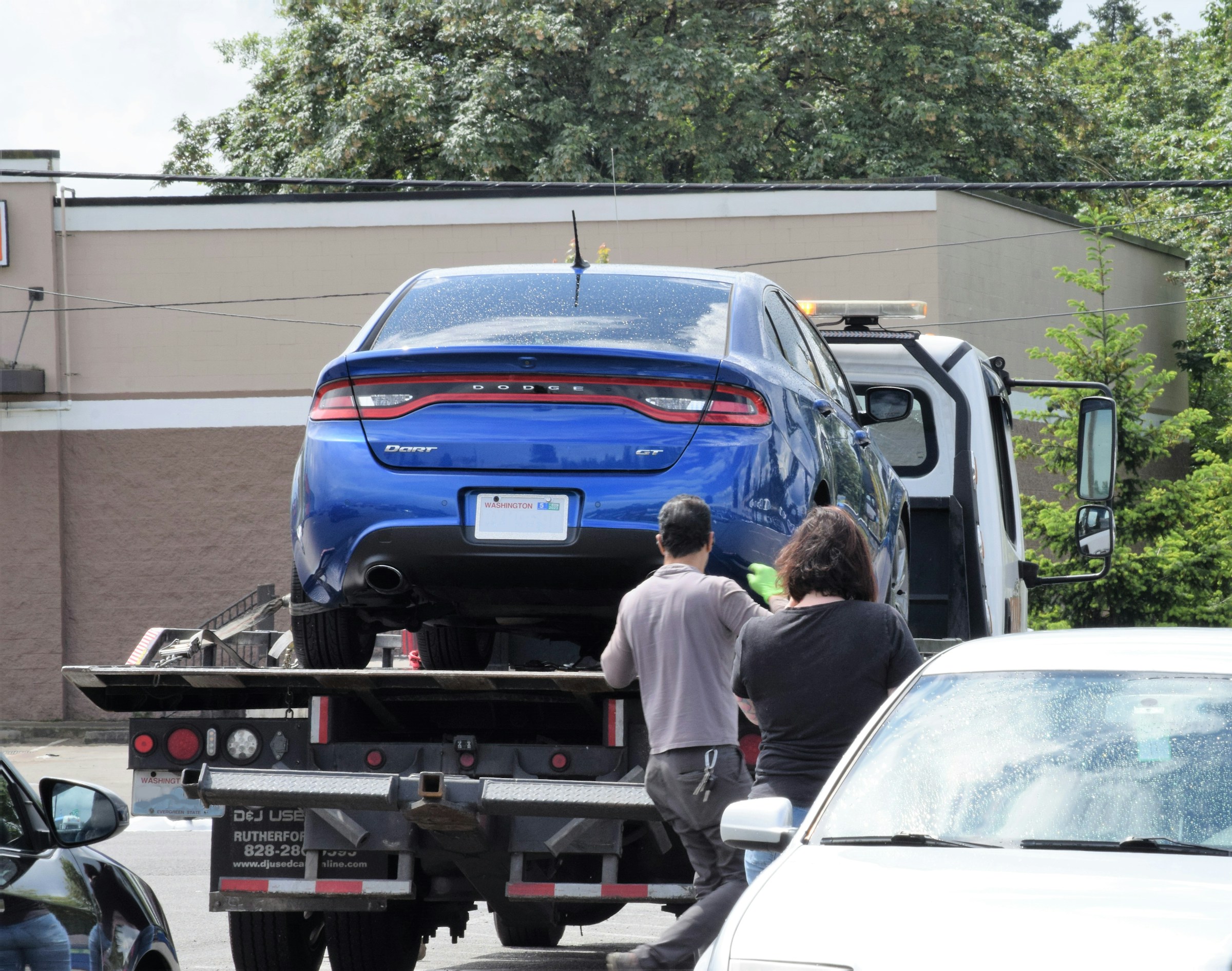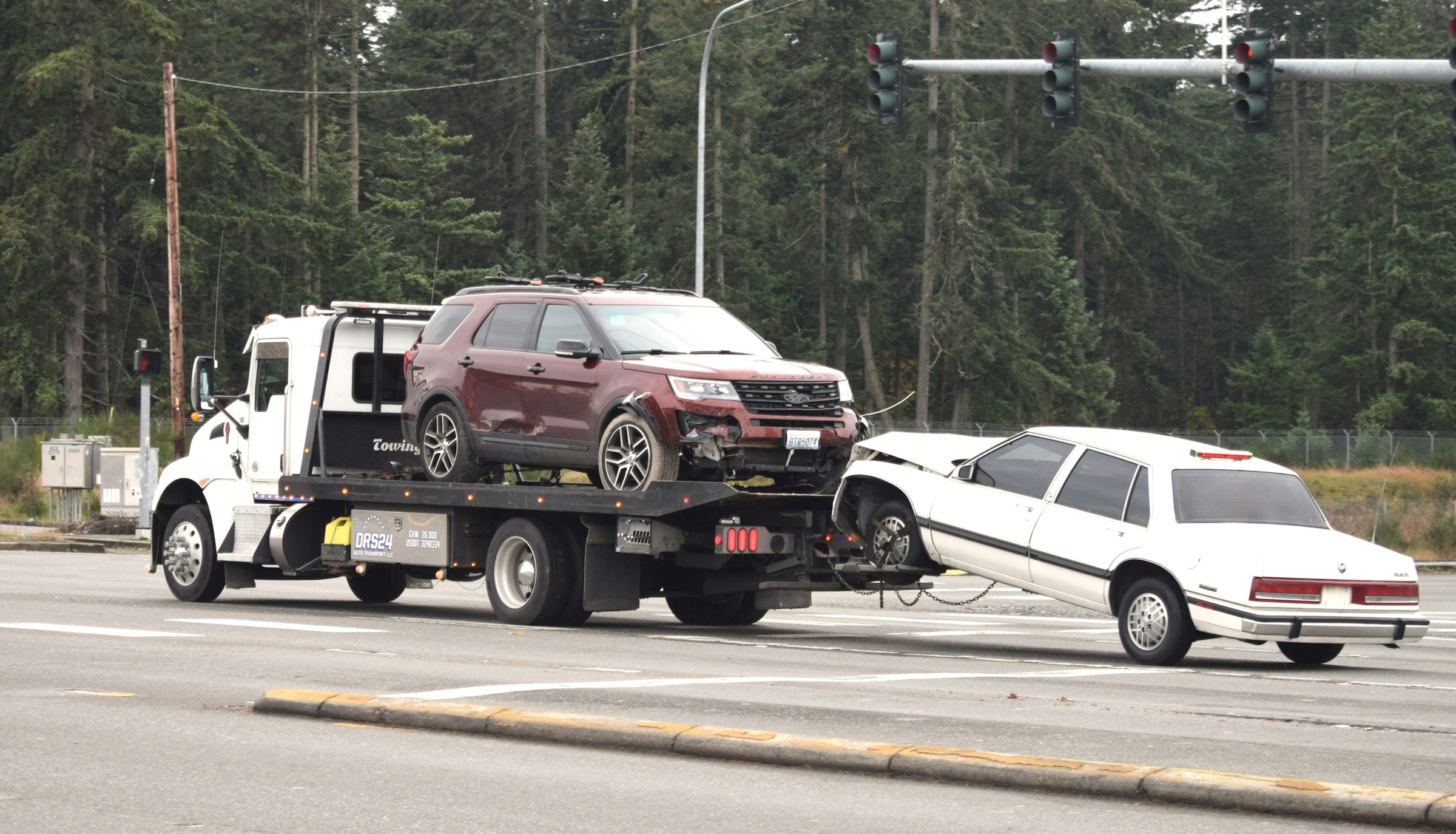Being in a car accident is stressful enough, but now, drivers have something else to worry about. Across California and beyond, a fast-growing scam is targeting crash victims in the moments they’re most vulnerable. These so-called “bandit tow trucks” appear at accident scenes without being called, haul away vehicles under false pretenses, and demand thousands of dollars in cash before releasing them. It’s the kind of situation that often ends up involving a car accident attorney, especially when insurance disputes or legal questions follow.

In this article, we’ll explain how the scam works, the key warning signs to watch for, and the steps you should take after a crash to avoid being scammed and protect your rights.
What is the bandit towing scam?
In February 2025, the California Department of Insurance issued a stark warning to drivers: Beware of a growing scam where bandit tow truck drivers seize vehicles after a crash and hold them hostage for cash.
This alarming trend, known as a “tow truck scam” or a “vehicle hostage scam,” was once confined to Southern California but is now spreading to other states as organized fraud rings find new ways to exploit accident victims during their most vulnerable moments.
According to a recent press release from the Department of Insurance, these scams often begin just moments after a crash, before the driver has a chance to call for help.
So-called “tow truck bandits” listen to police radio traffic and rush to crash scenes, using the stress of the moment to pressure drivers into letting them tow their cars. Accident victims experiencing brain trauma or post-traumatic stress disorder (PTSD) are especially vulnerable to these types of car crash scams.
The scammers frequently claim to be working with the victim’s insurance company, law enforcement, or local authorities, but in reality, they’re steering the vehicle to a repair shop that’s part of the fraud operation.
Once the car is in their possession, they hit victims with excessive fees for storage or repairs that aren’t covered by insurance, refusing to release the vehicle until they’re paid, effectively holding it hostage for cash.
CBS News spoke to California resident Natalie Hatcher earlier this year after she and her son became the victims of the tow truck scam. Natalie says their cars were hit by a drunk driver while parked in front of her home. Minutes after calling 911, a tow truck arrived—without being dispatched by law enforcement or the insurance company.
The driver quickly hooked both damaged cars to the truck and delivered them to a body shop about 25 minutes from Hatcher’s home. On arrival, they were declared “totaled.” She says the shop then demanded nearly $10,000 in release fees despite having done no actual work on the vehicles.
“This type of scam is preying on drivers at their most vulnerable moments—immediately after an accident—when they should be focused on their safety and next steps, not fighting to get their vehicle back,” said Insurance Commissioner Ricardo Lara in the Department’s public service announcement.
Anyone who believes they may be the victim of a vehicle hostage scam is encouraged to call law enforcement immediately.
How to avoid being the victim of a tow truck scam after an accident
With versions of this scam now appearing in states like Texas, Florida, Pennsylvania, and New York, it’s more important than ever to know the red flags. Below are the key warning signs of a vehicle hostage scam:
- A tow truck shows up within minutes of your crash.
- The driver insists on taking your vehicle to a specific shop without discussing your options.
- You’re asked to sign documents on the spot or are told someone else will contact you.
- The tow driver arranges a rideshare for you, pushing you to leave the scene quickly.
- You’re quoted outrageous fees to get your car back.
To protect yourself from being scammed after a car accident, the best advice is to stop and think. Don’t let the urgency of the moment or pressure from a tow truck driver rush you into making a hasty decision.

If you didn’t request the tow, don’t assume it’s there to help. Before you let anyone take your car, you should always contact your insurance carrier.
They can confirm whether the tow is authorized or help arrange a trusted service. If you’re unsure, waiting for law enforcement to arrive can also help you avoid a shady tow.
And perhaps most importantly, never sign anything you don’t fully understand. Scammers will often pressure you to sign paperwork right away, but don’t do it. Ask who sent them, where they plan to take your car, and what it will cost to get it back. If they won’t answer clearly or claim it’s all “covered,” that’s a red flag.
The bottom line: If something feels off, it probably is. So, know your rights, verify who you’re dealing with, and never be afraid to say no.
Article Last Updated: August 6, 2025.
